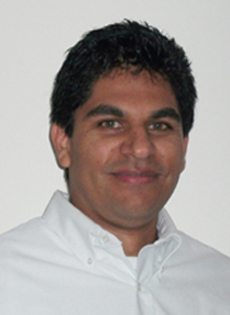
San Francisco de As�s y las ense�anzas de la Iglesia sobre el ambiente
Tuesday, October 4, 2011
*Nelson Araque
El 4 de octubre, la Iglesia Católica celebra la fiesta de uno de los santos más queridos y famosos: san Francisco de AsÃs (1182-1226). En 1979, el Papa Juan Pablo II proclamó a san Francisco âsanto patrono de la ecologÃaâ (Carta Apostólica Inter Sanctos: AAS 71). El fallecido Papa expresó:
âÃl ofrece a los cristianos el ejemplo de un respeto auténtico y pleno por la integridad de la creación. Amigo de los pobres, amado de las criaturas de Dios, invito a todos -animales, plantas, fuerzas naturales, incluso al hermano Sol y a la hermana Luna- a honrar y alabar al Señor. El pobre de AsÃs nos da testimonio de que estando en paz con Dios podemos dedicarnos mejor a construir la paz con toda la creación, la cual es inseparable de la paz entre los pueblosâ.
La relación ejemplar de san Francisco con la creación de Dios, en la que cada criatura era sagrada, es un camino a seguir en nuestros dÃas. Es un llamado a ser administradores y a cuidar la creación, al reconocer nuestra interconexión con ella. San Francisco nos lo presenta al explicar que la mejor manera de alcanzar una paz perdurable es viviendo nuestra vida como parte de la creación, no como si fuéramos a dominarla y a saquearla. Y su ejemplo de acoger la pobreza material deliberadamente, para estar tanto en solidaridad con los pobres de su época y como una manera de vivir en armonÃa con la creación, es un modelo a seguir en un mundo donde los recursos son limitados.
En nuestros dÃas, la relación ejemplar de san Francisco con la creación de Dios, sirve como modelo para luchar contra el efecto más dañino de la crisis ecológica que atravesamos, el cambio climático. La Alianza Católica por el Clima es un esfuerzo apoyado por una docena de organizaciones católicas nacionales, entre ellas el Departamento de Justicia, Paz y Desarrollo Humano de la Conferencia de Obispos Católicos, y el Programa de Justicia Ambiental de los obispos. A través de su programa de Embajadores Católicos del Clima, la Alianza Católica por el Clima ofrece presentaciones sobre las implicaciones morales del cambio climático, consistentes con la enseñanza católica según definida por nuestro Santo Padre en su Mensaje para la Jornada Mundial de la Paz 2010: âSi Deseas Cultivar la Paz, Protege la Creaciónâ, y en la declaración de los obispos católicos de los Estados Unidos, "Cambio Climático Global: Llamado al Diálogo, la Prudencia y el Bien Común".
Cada embajador se responsabiliza por promover la Promesa de San Francisco de Cuidar la Creación y los Pobres: una promesa y un compromiso por individuos católicos, familias, parroquias, organizaciones e instituciones para vivir nuestra fe al proteger la creación de Dios y abogar por quienes viven en la pobreza y enfrentan el mayor impacto del cambio climático global. Para unirse a la Alianza, se comprometen a desempeñar cada una de las seis partes de la Promesa de San Francisco:
Yo Prometo/Nosotros Prometemos:
⢠REZAR y reflexionar sobre el deber de cuidar la creación de Dios y proteger a los pobres y vulnerables;
⢠APRENDER y enseñar a otros acerca de las causas y las dimensiones morales del cambio climático;
⢠EVALUAR cómo cada uno de nosotros, individualmente o en nuestro hogar, centro laboral u otras entidades, está contribuyendo al cambio climático (consumo y conservación);
⢠ACTUAR para cambiar nuestras decisiones y comportamientos que contribuyen al cambio climático; y
⢠DEFENDER las prioridades y los principios católicos en los debates y decisiones en torno al cambio climático, especialmente en la medida en que afectan a los pobres y vulnerables.
Si buscan una manera de celebrar la fiesta de san Francisco, les invito a que visiten http://catholicclimatecovenant.org/la-promesa-de-san-francisco. Este es su primer paso para cuidar la creación y a los pobres.
Si desean conocer más sobre el programa de embajadores católicos del clima, visiten http://catholicclimatecovenant.org/about-us/catholic-climate-ambassadors.


Comments from readers
Nelson made no mention of either contraception or abortion as solutions. On the contrary, as a teacher of Morality at a Catholic high school, he reinforces the teachings of our Church daily to an age group that needs the very sound guidance he provides. Surely no person of faith would see those "solutions" as justifiable. Regarding working for legislative reform, this has been encouraged by the USCC for decades, and not just during presidential elections.
As for dear St. Francis, no one can extrapolate with certainty from his own few words and quiet life to the complexity of the present world situation. By the way, his most significant gift to the Church is his "Rule" , which is is not about animals and plants, but speaks of a simple vowed life in community. He was charged by our Lord to "Rebuild my Church", not tame the wolf of Gubbio.
But even the Baltimore Catechism taught me that all creatures have souls- finite and nonrational though they be. One would be hard pressed to argue that they should take precedence over even one human being.
As St. Francis did say, "peace and good".
Moreover, the agenda of most persons and groups proposing solutions to "climate change" is very un-Catholic. Human beings produce carbon dioxide every time they breathe. The bottom line is that virtually all of these climate change groups seek to limit the world's population by contraception and abortion, and their "women's health" programs are aggressively imposed upon the world's most poor and vulnerable. St. Francis would not approve or support this, nor is it Catholic to approve or support this. Believing in "climate change" and fighting for legislation and other measures limiting carbon dioxide output is not a choice one must make as a good Catholic, nor is it one that St. Francis would make if he were alive today.
Finally, you correctly point out that all of God's creation is sacred, and that "every creature is sacred," but this can also engender confusion. There is a fundamental difference between man, who possesses an eternal soul, and other creatures. Every human person is infinitely more valuable than any animal. There is a professor at Harvard advocating "creature equality", who places animals on the same level as humans. Already we have laws in this country which give greater protection to certain species of unborn whales than to unborn children. Let's be clear on this point: "Animals do not have souls." Yes, we should treat animals with care, and we should avoid unnecessary cruelty to animals. However, the interests of an animal or even an entire species of animals should never take precedence over the needs of people. God bless you.